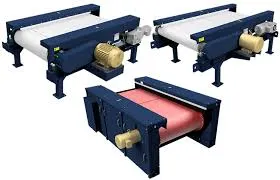

dets. . 06, 2024 17:13 Back to list
Understanding the Costs of Setting Up a Metal Recycling Plant
In the contemporary world, metal recycling has become an essential industry, largely due to the increasing demand for sustainable practices and the depletion of natural resources. However, embarking on a metal recycling project involves understanding the various costs associated with setting up a recycling plant. This article breaks down the key components that contribute to the total expense of establishing a metal recycling facility.
1. Land Acquisition Costs
The first significant expense in setting up a metal recycling plant is the cost of land. Suitable locations for such facilities are typically in industrial zones or areas with high traffic to facilitate easy receipt and dispatch of materials. Land prices vary significantly depending on the region, size, and proximity to transportation networks. In urban areas, where there is high demand for recycled metals, land acquisition costs can be quite high.
2. Infrastructure and Construction Costs
Once the land is secured, the next major expenditure falls under infrastructure development and construction costs. This includes building the physical plant, which involves extensive construction to accommodate machinery like shredders, balers, and eddy current separators. Additional facilities such as offices, washrooms, and maintenance areas also contribute to construction costs. Proper engineering and design are necessary to ensure safety and efficiency in operations, which may further increase expenses.
3. Machinery and Equipment Costs
Central to any metal recycling operation is the machinery and equipment needed for processing metals. The capital investment required for acquiring these machines can be substantial. Depending on the scale of the facility, businesses may invest in a variety of machines, ranging from material handlers and conveyor systems to scrap balers and shears. The choice between new and used equipment will impact overall costs significantly. Additionally, advanced sorting technologies—such as automated systems—offer efficiency but come with higher price tags.

4. Operating and Maintenance Costs
Beyond initial setup costs, ongoing operating and maintenance expenses are crucial to consider. These costs encompass utilities (electricity and water), labor wages, insurance, maintenance of machinery, and raw material procurement costs. Efficient management can help mitigate these costs, but they should be accounted for in cash flow projections.
5. Regulatory Compliance Costs
Metal recycling plants are subject to various local, state, and federal regulations aimed at ensuring environmental protection and worker safety. Securing the necessary permits can incur significant costs, as compliance often requires investments in waste management systems and environmental safeguards to prevent pollution. Ongoing compliance audits and adherence can lead to further expenses, making regulatory understanding essential for budgeting purposes.
6. Market Considerations
The metal recycling market is influenced by global metal prices, demand levels, and economic conditions. Businesses must carefully assess market trends to determine pricing strategies and optimize profitability. Fluctuating prices of recycled materials can impact operating revenue, making financial forecasting a critical component in planning for both initial setup and long-term sustainability.
Conclusion
Finally, establishing a metal recycling plant is not merely a financial endeavor but a commitment to sustainable development and resource conservation. Understanding the costs involved—from land acquisition and equipment purchases to compliance and operational costs—is crucial for entrepreneurs in this sector. Thorough planning and budgeting will not only facilitate a successful launch but also ensure that the plant operates efficiently and profitably in the long run. As the world increasingly shifts toward sustainability, the role of metal recycling will only grow, presenting opportunities for those prepared to navigate this industry effectively.
Latest news
Troubleshooting Common Eddy Separator Problems
NewsJul.04,2025
The Role of Metal Recycling Plants in Circular Economy
NewsJul.04,2025
The Impact of Recycling Line Pickers on Waste Management Costs
NewsJul.04,2025
Safety Features Every Metal Shredder Should Have
NewsJul.04,2025
How Industrial Shredders Improve Waste Management Systems
NewsJul.04,2025
How Cable Granulators Contribute to Sustainable Recycling
NewsJul.04,2025